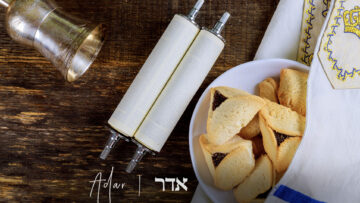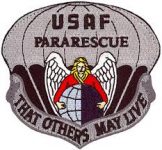MATTOTH/MAS’EY מַּטּ֔וֹת/מַסְעֵ֣י (Tribes/Journeys of) NUMBERS 30:2-36:13
PROPHETS : JEREMIAH 2:4-28, 3:4,4:1-2| GOSPEL : LUKE 13:1-9; MARK 11:12-23
by Min. Donald H. Garrett
TORAH:
Mattoth means “tribes” and it is here that YaHVaH has Mosheh call the leaders/heads of the tribes to give them more instructions. The first instructions are regarding vows to YaHVaH and oaths sworn to establish a prohibition upon oneself. Originally (a long time ago), I only read taking of vows in this section. However, YaHVaH is putting the same weight to sworn personal prohibitions here as He does to vows to Him. For instance, if you make an oath to never eat pork again, our Heavenly Father expects you to keep that oath the same as any vow given to Him.
Interestingly, a man’s vow or oath stands “he shall not desecrate his word; according to whatever comes from his mouth shall he do” (30:3b). This is commonly taught in society as “be a man of your word.” In other words, if you say something, you do it. Yet, a woman’s vow or oath can be nullified by her father if she lives in his house or by her husband if she is married. However, if the father or husband remains silent, then her vows or oaths shall stand the same as a man’s. The father or husband can only nullify the vow or oath on the day of his hearing (1st time he hears it). He cannot come back days, months, or years later and nullify her vow or oath. It would have to be done immediately. A woman living alone or a widow would have their vows stand as a man’s since they do not live with their father or husband.
The Scripture does not mention young children here; however, it stands to reason that a boy or girl living in their parent’s home would be under the parent’s decisions to nullify or allow any vow or oath of the child until they reach the age of adulthood or no longer live in their parent’s home.
Chapter 31 begins with something very hard for some to read. 12,000 armed men from the tribes of Israel are ordered to exact vengeance for Israel against the Midianites. The order comes straight from YaHVaH, our Heavenly Father. This vengeance refers back to the time when the King of Midian was trying to get Balaam to curse Israel and YaHVaH would not allow Balaam to do this. Yet, Balaam stepped outside of YaHVaH’s Will by suggesting to the King of Midian to use the Midianite women to seduce Israel and lead them astray. Many Israelites die over this as a result of YaHVaH’s anger against this. Now we see YaHVaH’s anger is not satisfied and is directed against the instigators themselves. Surprisingly, it only takes 12,000 men to wipe out an entire nation. At first, the women and children are spared; only the men, Kings, and Balaam are slaughtered. The women, children, livestock, and items of value are brought back to the Israelite camp. The entire cities of the Midianites has been destroyed and left barren. However, Mosheh is wroth with the officers of the 12,000 soldiers for bringing back the women, as it was the women who were used to seduce Israel astray. Mosheh orders ALL women of child bearing age or older and ALL male children to be slain. Only the pre-puberty girls are allowed to live. This is hard to read, because this is Genocide on the nation of Midian. The young girls (32,000 of them) would have been assimilated and raised as Israelites from that point on. An entire nation of people was ordered to be wiped out/killed by YaHVaH for trying to curse Israel and using their women to seduce the Israelites astray. And more mind-boggling is not a single Israelite died or was lost in this “war” against the Midianites.
The rest of the chapter describes the laws of koshering confiscated items from the war and how to divide the spoils. Basically, it if could go through the fire (metal) it was purified by fire, the rest was cleansed/purified by water before being allowed for use. All the warriors had to remain outside the camp for 7 days, then cleanse themselves before being allowed back in. Here you see the spoils were not kept by only those who went out to war. Half of the spoils went to those who had not gone out to war. The soldiers kept the other half. A tribute for the priests and Levites was drawn out from both halves. The priests and Levites received 64 young girls, 1,350 from the flock (probably sheep and goats), 144 cattle, and 122 donkeys. However, after the soldiers see none were missing or dead from their ranks, they offered 16,750 shekel-value worth of gold up to YaHVaH for His protection. It was kept in the Tent of Meeting as a remembrance.
The tribes of Reuben and Gad request the land East of the Jordan river in Chapter 32. This angers YaHVaH and Mosheh at first as a sign these 2 tribes will not follow over the Jordan to conquer the land West of the Jordan as YaHVaH had commanded. However, the leaders clarify their request by stating they only wish to leave their families and flocks in the land East of the Jordan, but their men of war will go out across the Jordan and not return until ALL Israel has received their inheritance of land. This then is rendered acceptable in YaHVaH’s eyes and Mosheh’s, so the land East of the Jordan is given to these 2 tribes.
Mas’ey means “journeys”. Chapter 33 begins with a summary of the journeys of the Israelites after leaving Egypt. At the end a warning is given about occupying the land. That by not driving out all of the inhabitants will cause Israel to be harassed by them. They shall be pins in Israel’s eyes and thorns in Israel’s sides. Is this not what is happening in Israel today with the “Palestinians”?
In Chapter 34, the boundaries of Israel are set and the leaders chosen.
In Chapter 35, cities for the Levites and cities of refuge for unintentional murder are established. There is clarification on who is a murderer and what is intentional and unintentional murder. The family of the one killed has the right to avenge the death of the murdered person, requiring the murder’s life. However, in unintentional murder, the accused must be protected in the cities of refuge from the avenger and may not be harmed even after his time of refuge is over and returns to the nation. No ransom money is to be paid in either case.
Chapter 36 ends this parashah and ends the Book of Numbers. In these last 13 verses, a law of intermarriage is put down. It is given that the daughters of one tribe shall only marry inside their own tribe, so as to keep the inheritance of the tribe intact and not cause it to go back and forth between the tribes. Not sure this still applies today as there is no true separation between the tribes anymore. However, today’s society does not follow a lot of YaHVaH’s laws anymore. How sad.
(c) Copyright July 2021 Min. Donald H. Garrett and Odon Obadyah Ministries, Inc.
Previous: PINCHAS
Next: D’VARIYM







